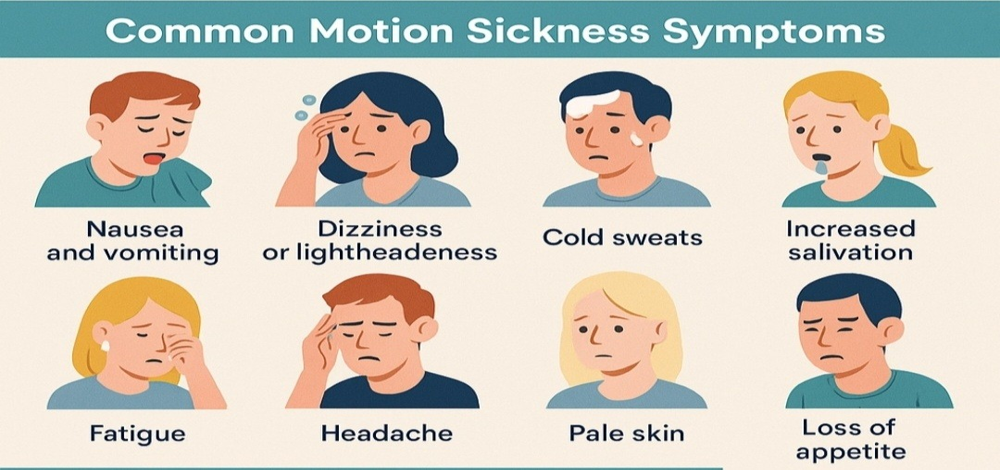Whether you're cruising on a ship, flying through turbulence, or winding down a mountain road, motion sickness can strike unexpectedly. For most people, it's a temporary inconvenience—dizziness, nausea, maybe a cold sweat. But what if the symptoms don't go away? Or worse, start getting more severe?
Motion sickness is usually harmless, but in some cases, it can point to underlying issues or lead to complications. Here's what to watch for and when it’s time to take things more seriously.
Common Motion Sickness Symptoms
Let's start with the usual suspects—these are the typical signs that your inner ear and brain are disagreeing on how you're moving:
- Nausea and vomiting
- Dizziness or light-headedness'
- Cold sweats
- Increased salivation
- Fatigue
- Headache
- Pale skin
- Loss of appetite
These symptoms usually fade after the motion stops or with simple remedies like fresh air, hydration, or over-the-counter treatments. However, there are red flags that you shouldn't ignore.
Motion Sickness Symptoms You Shouldn't Ignore
If you're experiencing any of the symptoms below, it's time to dig deeper. These may suggest something more serious than ordinary motion sickness.
- Persistent Dizziness or Vertigo
If the spinning sensation continues for hours or days after the motion ends, this could indicate a vestibular disorder such as labyrinthitis or Meniere's disease, not just motion sickness.
- Hearing Loss or Ringing in the Ears
If motion sickness is accompanied by tinnitus (ringing in the ears) or hearing loss, it could signal an inner ear issue or nerve inflammation that needs medical attention.
- Severe or Unrelenting Headache
A pounding headache unrelated to dehydration or stress could be a sign of a migraine variant or even neurological conditions. When in doubt, consult a doctor.
- Blurred or Double Vision
Vision problems should always raise a red flag. If you're struggling to focus or see clearly after motion exposure, seek professional evaluation to rule out neurological or ocular problems.
- Chest Pain or Shortness of Breath
These aren't typical motion sickness symptoms and may suggest a cardiovascular issue, especially if accompanied by dizziness or fainting.
- Confusion or Trouble Speaking
Any signs of cognitive impairment or slurred speech during or after travel warrant immediate medical attention. This could indicate a transient ischemic attack (TIA) or other neurological problem.
When to See a Doctor
If your motion sickness symptoms:
- Last more than a few hours after the motion ends
- Worsen over time instead of improving
- Are accompanied by unusual symptoms like chest pain, vision problems, or confusion
...it's time to stop self-medicating and start investigating.
Staying Ahead of Motion Sickness
For those prone to motion sickness, prevention is key. Consider:
- Sitting in the most stable area of a vehicle (mid-ship, over the wing, front seat)
- Staying hydrated and avoiding heavy meals before travel
- Using doctor-recommended anti-nausea medications if needed
- Use NauseaPlast Car Reed Diffuser:
NauseaPlast is a unique car reed diffuser specially designed for motion sickness relief. Unlike normal air fresheners, this product is a blend of natural ingredients which are herbal extracts that have soothing fragrances that reduce the symptoms of motion sickness. You have to just plug it in the car and it instantly start working and you get fresh fragrance and comfortable ride. NauseaPlast contains a mix of herbal components that calm the senses and reduce the discomfort caused by motion sickness. It starts showing its effect as soon as you plug it in the car. You feel less dizzy, do not feel nauseated and the trip becomes more relaxed.

